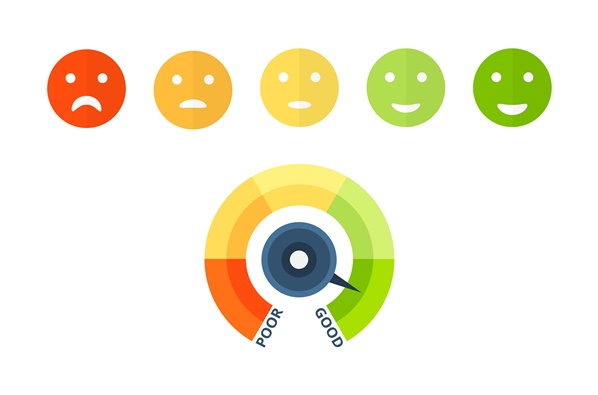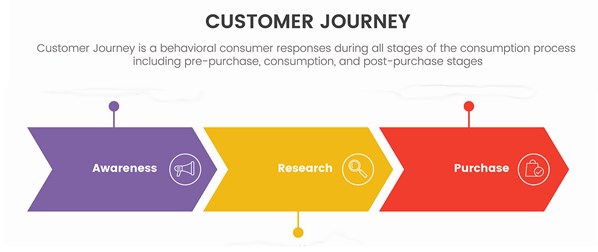
In recent years, the importance of effective customer service strategies has become increasingly evident for businesses across various sectors.
One aspect of a customer service strategy is to leverage data to create personalized experiences, streamline processes, and improve overall customer satisfaction. Purchased datasets play a substantial role in this data-driven approach, providing valuable insights that businesses can use to refine their customer service efforts.
When companies acquire datasets they are able to access external data sources, complementing their internal customer information. These datasets can consist of demographic, psychographic, and behavioral data, which are valuable for understanding customer preferences, patterns, and needs. By combining their own data with purchased datasets, businesses can obtain a more comprehensive understanding of their target audience, enabling them to craft customer service strategies that enhance the overall customer experience.
However, it is essential for businesses to carefully analyze and select the right datasets to ensure data quality and relevance. Integrating high-quality data into their customer service strategies will help companies achieve their goals, including increased customer retention rates, improved brand reputation, and higher profitability.

The Importance of Datasets in Customer Service Strategies
Improving Customer Experience
According to a survey by NewVoiceMedia, 44% of US customers switch to a competitor following a poor customer service experience. By providing valuable insights into a comprehensive customer profile, datasets enable businesses to understand and serve their customers better. These datasets improve customer experience by identifying trends, preferences, and potential pain points, allowing businesses to tailor their interactions and address customer concerns effectively.
Supporting Sales and Marketing Initiatives
Datasets also play a vital role in supporting sales and marketing initiatives. High-quality data allows businesses to segment their customer base and develop targeted campaigns that resonate with specific groups. This segmentation facilitates a more focused approach to reaching potential customers and generating leads. Ultimately, it leads to higher conversion rates and increased sales, resulting in a positive impact on business revenue.
Enhancing Personalization and Automation
Personalization and automation are essential components of any robust customer service strategy. Datasets contribute to both of these aspects by providing the necessary data to inform personalized messaging and efficient automation systems. By utilizing customer information from these datasets, businesses can create customized content and offers designed to engage and retain customers. Additionally, automation tools can leverage this data to streamline processes and deliver prompt, relevant, and personalized responses to customer inquiries.
Using Third-Party Data Effectively
Choosing Quality Data Providers
When incorporating third-party data in customer service strategies, it is crucial to select a quality data provider. This will help ensure that the acquired data is reliable, relevant, and current. Be sure to research and evaluate multiple data providers based on the following criteria:
Integrating with CRM Systems
The seamless integration of third-party data into Customer Relationship Management (CRM) systems is essential for utilizing acquired datasets effectively in customer service strategies. Here are some steps to ensure a smooth integration process:
By carefully selecting quality data providers and integrating these datasets with CRM systems, businesses can enhance their customer service capabilities and make informed decisions that improve customer satisfaction.

Leveraging Datasets for Customer Support Strategies
Reducing Churn and Increasing Retention
Reducing customer churn can provide valuable benefits. For example, a Bain & Company survey revealed that customers who rate their experience as “very good” are four times less likely to churn than customers who rate their experience as “poor”.
By analyzing customer behavior and preferences, businesses can identify areas for improvement and take proactive steps to reduce churn. By keeping track of key performance indicators (KPIs) such as response times, resolution rates, and satisfaction scores, customer support teams can focus their efforts on areas that directly impact customer retention.
Optimizing Onboarding and Exchanges
Effective onboarding can lead to increased customer satisfaction, loyalty, and reduced churn rates. With the help of acquired datasets, companies can identify patterns and trends that contribute to successful onboarding experiences. This information can then be used to streamline onboarding processes, making it easier for customers to engage with the product or service.
Similarly, improving the exchange process can also boost customer satisfaction. Datasets can provide insights into common customer pain points related to exchanges and returns, such as long wait times or complex procedures. By addressing these issues, businesses can create more efficient and customer-friendly exchange processes.
Monitoring and Responding to Feedback
Customer feedback, including online reviews and social media comments, is a valuable source of information for businesses. Companies can leverage datasets to monitor and analyze feedback on various platforms, identifying areas for improvement or potential opportunities.
One key aspect of dealing with customer feedback is responding promptly and appropriately to both positive and negative comments. Using datasets to gain insights into the most effective methods of addressing customer concerns, support teams can tailor their communication strategies to ensure a satisfactory resolution for both parties. This proactive approach can further enhance business reputation and foster strong customer relationships.
The Role of Audience Data in Account-Based Marketing
Audience data plays a crucial role in account-based marketing (ABM) strategies. By leveraging detailed information about a company’s target customers, marketing teams can craft personalized messages and deliver them through the most effective channels. This tailored approach helps improve engagement rates, generate higher-quality leads, and drive better revenue results.
Datasets commonly offer a valuable source of audience data. These datasets provide in-depth knowledge of specific industries and the key decision-makers within them, giving marketers access to essential information needed for account-based marketing campaigns. The data may include customer demographics, behavioral insights, and past purchasing history, all of which can be used to effectively engage and convert targeted accounts.
In the context of ABM, audience data is utilized to prioritize target accounts. Depending on the information available, marketing teams may segment audiences using various criteria such as company size, growth rates, and relevance to the brand’s solutions. This allows them to allocate resources strategically and focus on accounts with the highest potential value.
Account-based marketing campaigns rely on personalized content and communication to resonate with targeted accounts. Audience data informs this personalization process, enabling marketers to tailor messages to an account’s specific needs, pain points, and aspirations. By addressing these factors directly, brands can more effectively demonstrate their value proposition and establish trust with decision-makers.
Lastly, audience data enhances performance measurement in ABM efforts. By tracking the outcomes of marketing efforts on specific accounts, teams can identify trends, patterns, and areas for improvement. This close monitoring of data-driven results allows marketers to adjust their strategies and continually optimize their campaigns for maximum impact.

Understanding the Customer Journey and Enhancing Satisfaction
Influencing Purchasing Decisions
The customer journey is an essential aspect of a successful customer service strategy. To enhance customer satisfaction, understanding the factors that influence purchasing decisions is crucial. Factors such as product quality, price, brand reputation, and customer reviews can impact purchasing choices. Businesses can gather data on these factors through datasets, enabling them to make data-driven decisions to improve their offerings and marketing tactics.
Boosting Customer Loyalty
Customer loyalty is a key indicator of long-term success in businesses. By analyzing the data obtained through datasets, companies can identify patterns and trends that contribute to customer loyalty. This information can help them design targeted campaigns and programs that foster a sense of loyalty among their customer base. For instance, timely escalation and resolution of customer complaints, personalized offers, and tailored customer experiences can significantly impact customer retention and loyalty.
Evaluating Customer Satisfaction through Surveys
Surveys are an effective way to gather data on customer satisfaction. Using datasets, companies can analyze feedback from a broader audience, which may include prospects, one-time customers, and loyal clients. This data can aid in understanding varying levels of satisfaction across the customer journey and pinpoint areas that require improvements. By aggregating and analyzing survey data, businesses can identify the key drivers of customer satisfaction and focus their efforts on enhancing these aspects of the customer experience.
Social Media and Customer Service Strategies
In recent years, social media has played a crucial role in shaping customer service strategies. Companies are leveraging platforms like Facebook, Twitter, and Instagram to interact with customers, addressing their concerns and providing real-time support. This approach has led to quicker resolution of issues, fostering brand loyalty and enhancing the overall customer experience.
However, the integration of social media in customer service also poses privacy concerns. Personal information may be inadvertently disclosed during public interactions, leading to potential identity theft and data misuse. As a result, companies need to adopt stringent privacy policies and ensure that sensitive customer data remains protected while leveraging these platforms.
Addressing Privacy and Identity Issues
Maintaining a balance between personalization and privacy is critical. The success of these strategies largely depends on the availability of accurate customer data. But as companies collect more information about customers, the probability of privacy breaches and identity theft increases.
To mitigate these risks, businesses must ensure compliance with data protection regulations, such as GDPR and CCPA. Implementing robust security measures, like encryption, two-factor authentication, and regular audits, is essential to safeguard sensitive information. Furthermore, organizations should prioritize end-user education on best practices in protecting personal data.
Final words
Purchased datasets play an essential role in shaping customer service strategies. By providing businesses with valuable information on customer trends and behaviors, these datasets enable companies to offer better-targeted services and meet customer needs.
The integration of datasets can lead to improved customer satisfaction rates and long-term relationships. Since knowledge is power, having access to comprehensive data on customer preferences and habits allows customer service teams to cater to their needs more effectively. This results in customers feeling heard, respected, and valued, fostering loyalty and repeat business.
While utilizing datasets, companies must ensure data accuracy, privacy, and compliance with relevant regulations. This responsibility lies in both the data provider and the organization using the data. By carefully reviewing the dataset’s quality and adhering to industry standards, businesses can enhance their customer service strategies while maintaining ethical practices.
Share this:
on Twitter
on Facebook
on LinkedIn










